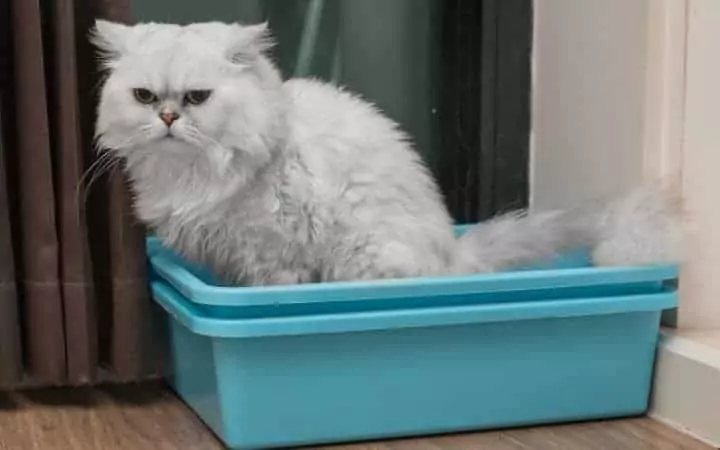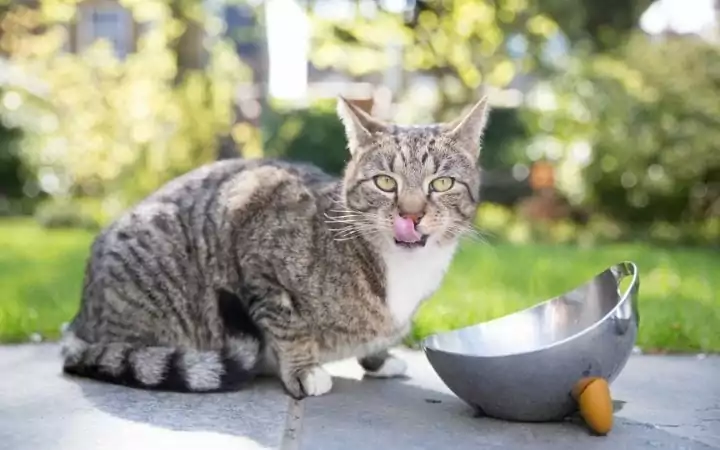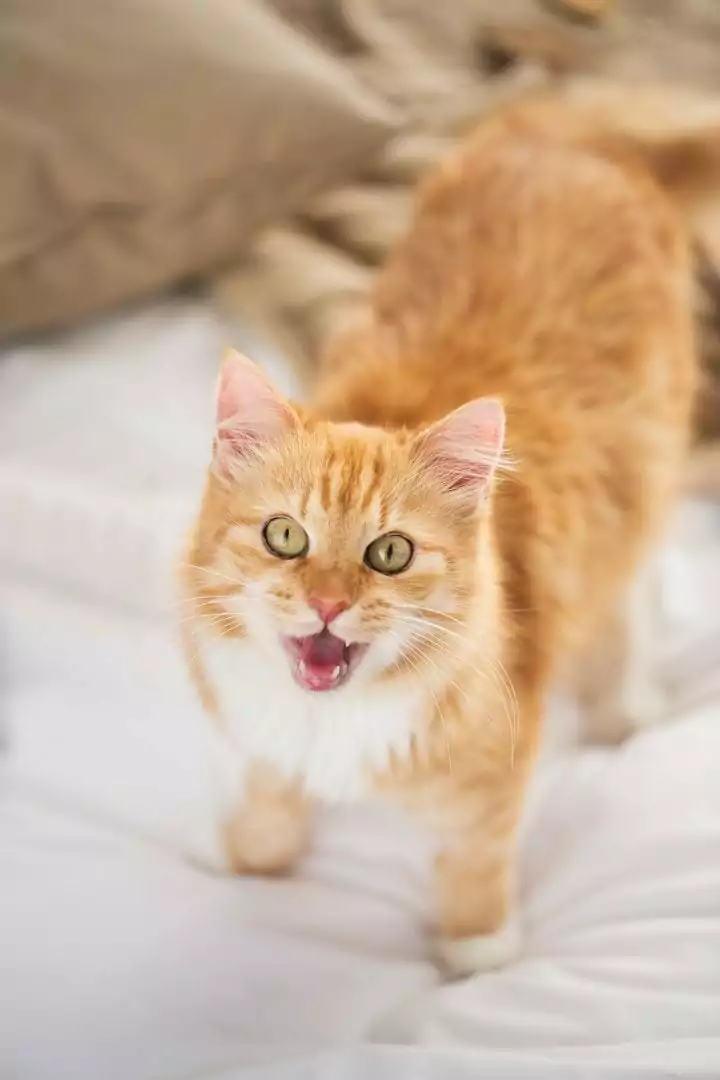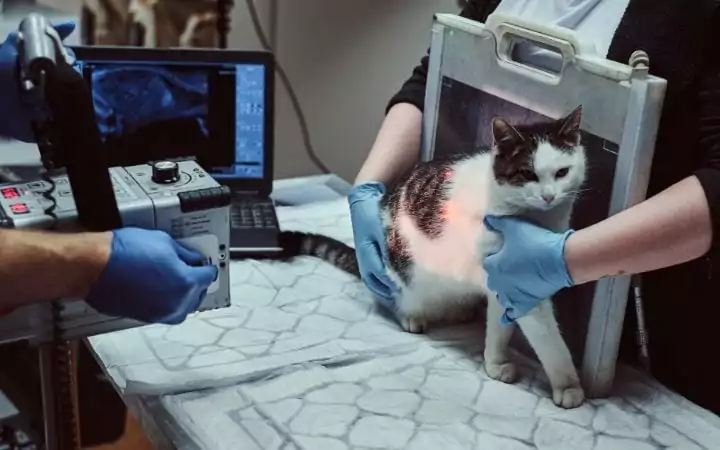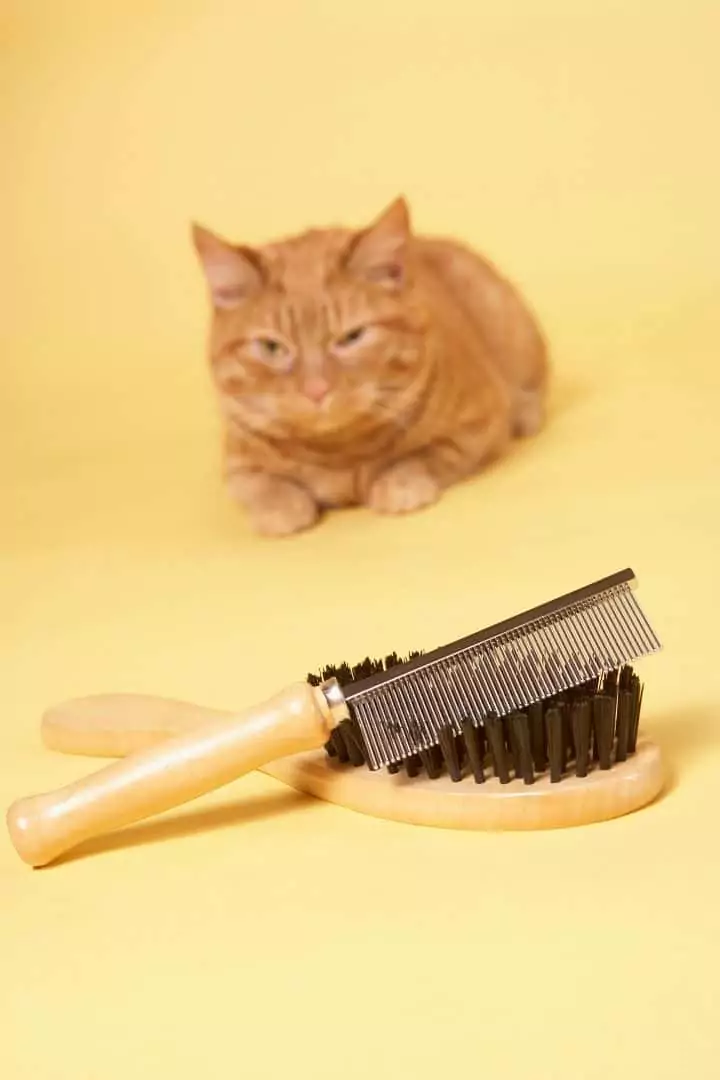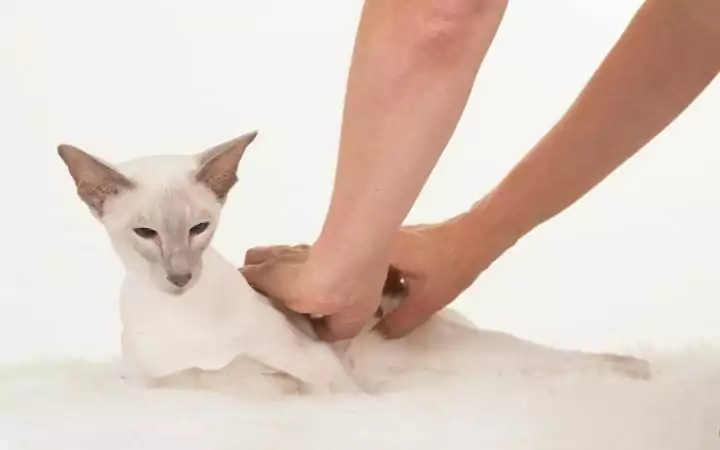I have to say it: I am a cat lady! My two feline friends mean the world to me and are part of my family.
When one of my cats, named Lady, came into my life (initially just for fostering but I always want to keep my foster cats), I noticed that she was straining to go to the toilet, and her feces were small, hard and dry. Lady was constipated.
There are many causes of constipation, and for my Lady, it was dehydration and easy to treat.
Constipation is a common condition in cats of any age, and in this article, we will share everything you need to know about feline constipation.
What is Constipation in Cats?
Cats usually defecate (bowel movement) at least once a day, and the product should be moist, with a malleable consistency and brown.
Constipation happens when the feces are held in the large intestine for too long and absorb an excessive amount of water, becoming hard and dry. If your cat is having trouble defecating, he may have constipation.
As stated by the MSD Veterinary Manual, constipation is: “the infrequent or difficult evacuation of feces, which are typically dry and hard.”
Also, it is important to know the following terms related to constipation in cats:
- Obstipation: no sign of stool in the litter tray (unable to defecate). This is caused by ongoing constipation, which affects the rectum and colon.
- Idiopathic (unknown cause) Megacolon: a condition where the colon becomes extremely dilated, limp, weak, and not able to function normally. Megacolon can take place after long-term constipation and obstipation.
What are the causes of Cat Constipation?
Dehydration is the leading cause of constipation. Lack of intake of water can occur when the cat is presenting kidney failure, or the cat’s diet is mostly kibble. Let’s look at other possible causes:
- Stress: due to an unclean litter box, furniture replacement, new pets, or change of litter.
- Colon obstruction: linked to tumor growth, fractures after a traffic accident, or a foreign body such as a hairball (overgrooming).
- Health conditions: neurological problems, Feline Dysautonomia (nervous system disorder), Hypothyroidism, Megacolon.
- Medications side effects: for example, diuretics.
- Obesity and an inadequate diet are factors that can trigger constipation.
What Are the General Symptoms of Constipation in Cats?
One of the common indicators that your feline companion is having a hard time evacuating its bowels is the struggle to defecate. Other cat constipation symptoms are:
- Vocalizing in pain when having a bowel movement (tenesmus)
- Small, dry and hard stool
- Decrease in appetite
- Lethargy
- Vomiting
Diagnosis of constipation in cats
The first step is to bring your pet to the vet if you notice any signs of constipation.
Sometimes problems with defecating can be confused with issues in the urinary tract. Remember to answer accurately to every question that your veterinarian may have and check the litter box before going to the vet. The medical history is crucial to diagnose constipation and the underlying cause.
Your vet will perform a medical examination. Your veterinarian may also conduct:
- Pelvic and abdominal X-rays: to diagnose Megacolon and look for traumas caused by injuries.
- Further tests: urine and blood analysis to rule out underlying conditions like renal failure.
How to palpate a cat for constipation?
During the medical examination, your veterinarian will gently palpate your cat’s abdominal area to find and feel any stool accumulation in the colon or a full bladder with urine.
Here is a video that explains how you can palpate your cat and understand if it is blocked or constipated:
How to help a cat with constipation? Are there any home remedies for constipation in cats?
Your veterinarian may perform different procedures depending on the cause and severity.
- Enema: to stimulate evacuation of feces
- Intravenous fluid therapy (IV): to treat dehydration
- Medication: to promote contraction of the large intestine
- Manual removal of stool: this requires the cat to be under anesthesia
- Colectomy: surgical removal of the infected part or all the colon
- Exploratory surgery: in case of foreign objects blockages
There are some cats constipation remedies and measures you can take at home to help your furry-ball. Make sure to consult with your veterinarian first.
- Cleaning your cat’s water bowl every day and changing the water to promote water consumption.
- Add canned wet food to your feline diet and start diet management. Again, speak with your vet to look for options that are suitable for your kitty.
- Laxatives, ask your vet for different alternatives and the correct dose for your cat’s weight.
- Brush your cat as often as you can to remove loose hairs.
- Try natural canned pumpkin, which adds fiber to your cat’s diet.
Cat constipation massage
Have you heard of cat acupuncture and constipation massages? Yes! It can be done in your kitty as extra assistance with cat constipation.
Here is an excerpt from Veterinary Practice News:
“Abdominal massage encourages peristalsis, decreases colonic transit time, increases the frequency of bowel movements in constipated patients, and reduces the discomfort and pain of chronic constipation.”
Always talk with your vet before booking a session and think if it would be a pleasant experience for your cat and not a stressful one.
Neonatal kittens cannot defecate or urinate on their own. If you rescue orphan kittens, it is essential to stimulate them after each feeding to avoid constipation and urinary problems. Here is a video on how to do it:
Summary
I know how much you love hearing those purrs when your cat is around, and I am confident you will do anything for the overall wellbeing of your feline friend.
It is CRUCIAL to always look for any unusual behaviors or signs that there might be something wrong with your cat. Be attentive, and keep doing the best for your purr baby. Small changes like fresh water every day and adequate nutrition can make a massive difference for your cat’s health.
If you are in the veterinary field, I want to thank you for all your hard work and for making the best decisions for your feline patients (even when it can get a bit smelly!)
Do you know that February is also a special month for cats? It is National Cat Health Month! You can check out this article and learn what you can do for your furry friend this month (and always!)

